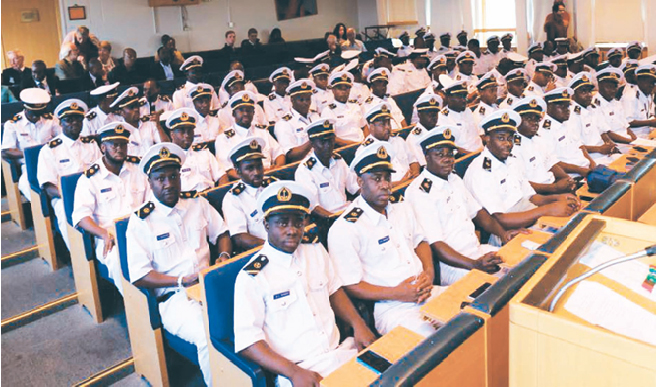
Seafarers are invited to take part in an online questionnaire as part of a comprehensive study to assess the effectiveness of the International Safety Management Code (ISM Code) and how well it is implemented.
Seafarers have a key role in implementing safety and environmental protection policies, in particular, the safety management system (SMS) on board ships at sea. Through the questionnaire, their feedback will be instrumental to understanding how effectively the ISM Code is being implemented and will inform future work on relevant instruments.
The ISM Code provides an international standard for the safe management and operation of ships and for pollution prevention. It requires shipping companies to carefully consider their management structure and the responsibilities and authorities of those involved in the operation of their ships from the perspectives of safety and environmental protection.
The Code was introduced following several serious incidents where human error and management failings were found to be contributing factors. One example is the capsizing 1987 of the ferry, Herald of Free Enterprise, just outside the port of Zeebruge in Belgium, in which 193 people died. That year, the IMO Assembly adopted resolution A.596(15), which called upon the Maritime Safety Committee to develop guidelines concerning shipboard and shore-based management to ensure the safe operation of ro-ro passenger ships. The ISM Code became mandatory in 1998.
Thirty years on, the IMO Secretariat has commissioned the Study on the Effective Implementation of the ISM Code to provide objective evidence and conclusions along with proposed measures on modernizing provisions under the ISM Code to improve onboard safety and environmental protection policies.
As well as asking basic questions on age, gender, and length of service of the seaborne workforce, the survey aims to assess seafarers’ level of involvement in onboard safety-related decision-making and determine their views on the effectiveness of the ISM Code. There are also questions on levels of satisfaction with working and living conditions and on how companies deal with seafarers’ fatigue, stress and mental ill health.
Those who wish to take part can do so until 30 September. Participation is anonymous, and responses will be treated as confidential. It should take around 15 minutes to complete. Findings from the Study will be reported to the Maritime Safety Committee when it meets for its 108th session, 15-24 May 2024.















